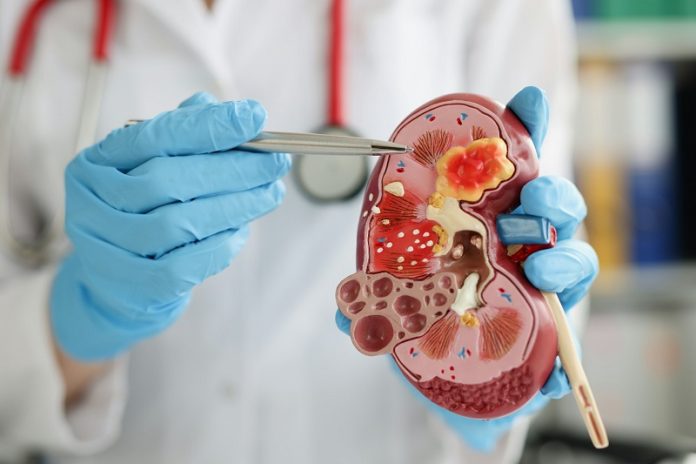
Kidney stones are painful and can lead to serious health problems like chronic kidney disease, osteoporosis, and heart disease.
Once someone gets a kidney stone, there’s about a 30% chance they’ll have another one within five years. To help prevent this, doctors often suggest changing what you eat and drink.
But there hasn’t been much research on how diet changes affect people who have had only one kidney stone compared to those who get them again and again.
A team of researchers at the Mayo Clinic decided to study this more closely. They wanted to see if certain foods could help prevent kidney stones from coming back.
Their study found that eating more foods high in calcium and potassium might reduce the chance of getting kidney stones again. The results were published in Mayo Clinic Proceedings.
The researchers looked at the diets of 411 people who had their first painful kidney stone and compared them to 384 people who had never had kidney stones.
All participants were patients at the Mayo Clinic in Rochester, Minnesota, or Florida between 2009 and 2018. Everyone filled out a detailed food and drink questionnaire.
They found that people who ate less calcium and potassium were more likely to get a kidney stone for the first time. They also noticed that those who didn’t drink enough fluids, had low caffeine intake, or consumed little phytate (a plant-based nutrient found in whole grains and nuts) were more likely to form stones.
Of those who had a kidney stone once, 73 people developed another one during the study, which lasted around 4 years on average. Again, low calcium and potassium in the diet were linked to getting kidney stones again.
Dr. Andrew Rule, one of the study leaders, said these results are important because most advice about preventing kidney stones focuses on first-time cases. But people are more willing to change their diet if it means avoiding future pain. Knowing what foods are most helpful can make it easier for doctors to give the right advice.
The study showed that not drinking enough fluids—less than about nine 12-ounce glasses a day—was linked to first-time kidney stones. This total includes liquids from food like fruits and vegetables.
Low fluid and caffeine intake can cause the urine to become too concentrated, which may lead to stone formation. Phytate, found in healthy foods like whole grains and nuts, helps the body absorb calcium better and may lower the risk of stones.
Dr. Rule said it can be hard for people to change their diet. That’s why it helps to know which changes matter most. The study found that low calcium and potassium levels in the diet were stronger predictors of kidney stone recurrence than not drinking enough water.
Dr. Api Chewcharat, the study’s lead author, added that this doesn’t mean drinking fluids isn’t important—it still is. But for people who’ve already had a kidney stone, adding more calcium and potassium to the diet could be even more helpful.
The researchers suggest eating about 1,200 milligrams of calcium per day, which matches the U.S. Department of Agriculture’s guidelines. While there isn’t a set daily amount for potassium, they still recommend eating potassium-rich foods.
Good sources of potassium include fruits like bananas, oranges, grapefruits, cantaloupes, honeydew melons, and apricots. Vegetables such as potatoes, peas, mushrooms, cucumbers, and zucchini are also great choices. Adding more of these foods could help stop kidney stones from coming back.
If you care about kidney health, please read studies about how to protect your kidneys from diabetes, and drinking coffee could help reduce risk of kidney injury.
For more information about kidney health, please see recent studies about foods that may prevent recurrence of kidney stones, and eating nuts linked to lower risk of chronic kidney disease and death.
The study is published in Mayo Clinic Proceedings.
Copyright © 2025 Knowridge Science Report. All rights reserved.



